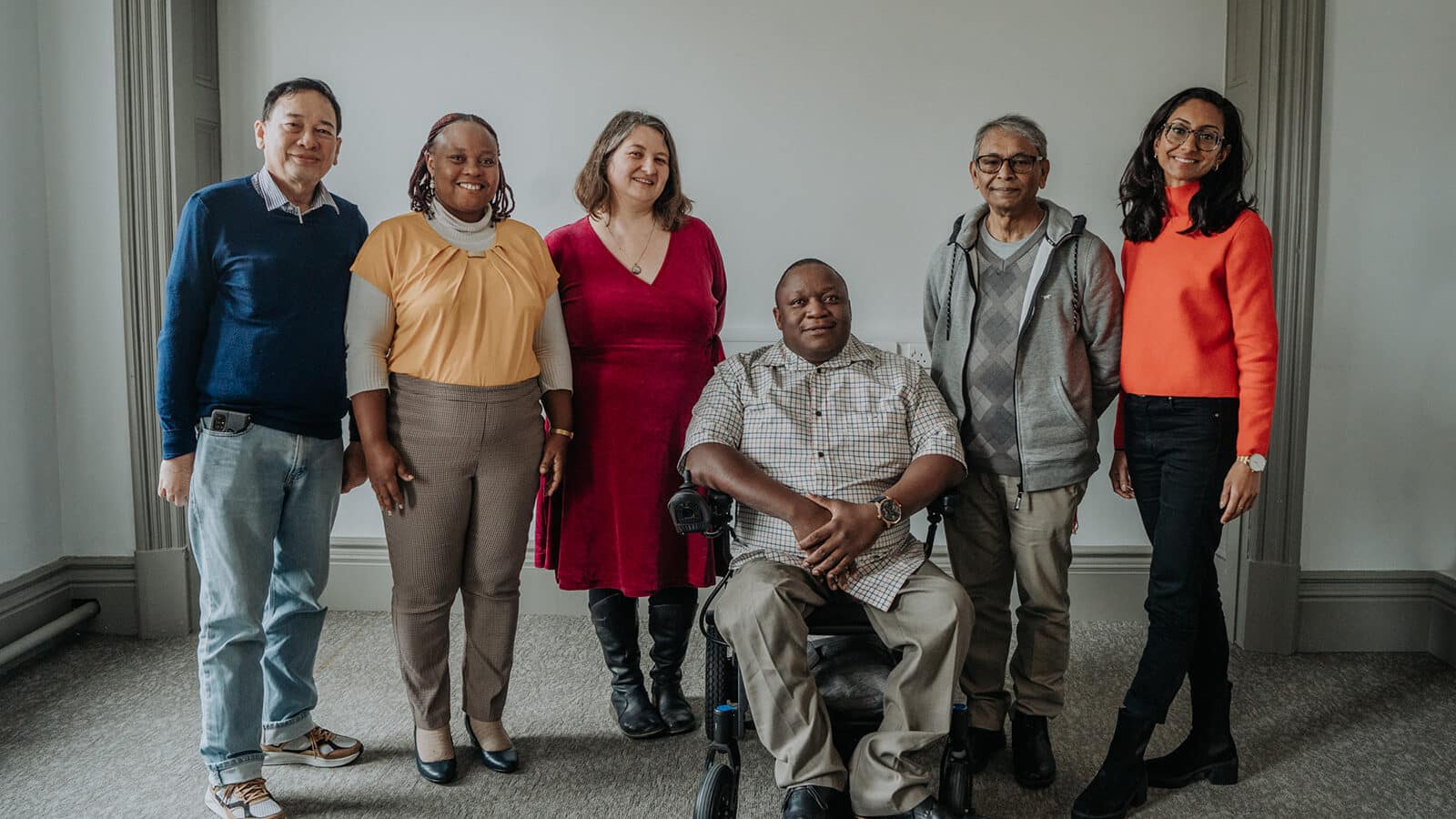Elkhansa is a young leader in Sudan. She is a disability rights activist advocating for equal rights for disabled women and girls in her country. Through the programme she has been mapping disability rights organisations in Sudan, and supporting them to make change.
Youth Leadership in action in Sudan.
“My name is Elkhansa. I’m 25 years old and I’m from Sudan. I’m a graduate in English language, and I work as English language teacher. I’m also an illustrator. I have a lot of paintings. I lost my hands when I was three years old, so I rely on my legs. I started drawing to raise awareness about disability issues in the community.

I don’t have a lot of experience in the disability movement because I’ve been busy with my own work – my art exhibitions and preparing for my MBA. But I started working with ADD as a trainee and I heard about the Young Leaders programme, so I applied to join. I’m really pleased to be a part of it.
Being a Young Leader.
It’s not just the practical skills I’ve learnt from the programme, I’ve learnt the spirit of a team working together, of co-operation and unity, I’ve learnt about other types of disability. It’s an amazing experience to understand other types of disability and know that as a community, we are a part of each other. The most important thing I have gained is the power to defend my rights as a person with a disability.
I now know a lot about my rights, and how to advocate for them. We are human beings we have the right to live! We just want to be treated like everyone else. We are ready to collaborate.

I have the courage to demand equality and the self-confidence to speak as a leader in front of other leaders.
Elkhansa
I have learnt I am not only working for myself, but for future generations, and not just for my country but for all disabled persons. This is the literal meaning of leave no one behind.
Strengthening the Movement.
Living in a lower income country we face a lot of challenges. The biggest one is political instability, sudden changes and demonstrations. Also, the lack of understanding about the issues faced by people with disability, the lack of opportunities for people with disabilities, ignorance of our situation. We don’t get the same opportunity to participate in society.
When you try to advocate for disability rights, it’s hard to get people to commit to change. I have seen some private sector companies make changes like adapting the office environment and providing employment opportunities for young people with disabilities. But there is much more to be done. In general they treat disabled people like they are literally not able. Like we can’t make decisions about our own lives.

I have seen some positive change. Through the Young Leaders programme I have had the chance to help strengthen the disability rights movement. I have visited organisations of people with disability, created networks between different organisations and shared what we have learnt. Many of these people have been ignored, but we listen. We share tips on advocacy and awareness raising – what works and how to advocate effectively.
The main challenge faced by these organisations is funding. They have very little money compared to their needs. There is a tiny amount of money. There is the challenge of political uncertainty, and the demonstrations, but the main thing is funding. Small NGOs can apply for funds from the government or private sector, but grassroots disability rights organisations can’t access this money. There is no conversation about how much is needed and what for.
Double Discrimination.
Being a young woman and disabled, it’s double discrimination. Here, women are not seen as decision makers, they are seen as dependents. People think a woman with a disability should stay at home. Disabled women cannot marry, although a disabled man could. It’s not fair at all.

There are differences in any generation, in our generation we have different needs. The norm in Sudan is that young people are not decision makers, because old people are considered wiser. But I know best about my experience, and how to work with my generation, and I think this should be respected.
People make a lot of assumptions about me, but to them I say, try me, listen to what I have to say.
My hope for the future.
I want to continue to be a part of ADD. I want to train the next generation of young leaders. I want to see this programme continue.
We need more advocacy, more awareness raising. ADD has become our platform to link between us and our government, and we need to continue doing this.
People here need to trust persons with disability. We are working in a coherent way to change the attitude of government and society. We just need continued support to strengthen our movement. That is how change will happen.”
keep reading

Activist stories
Hear from more of the amazing disability rights activists we work with.

about us
Find out more about ADD International and what we do.
